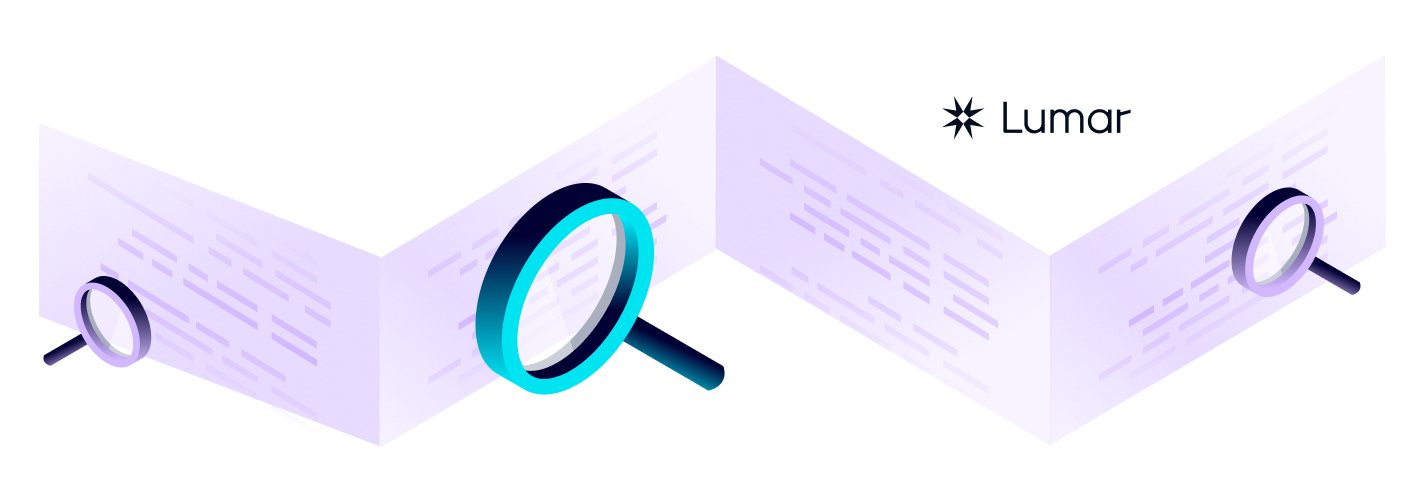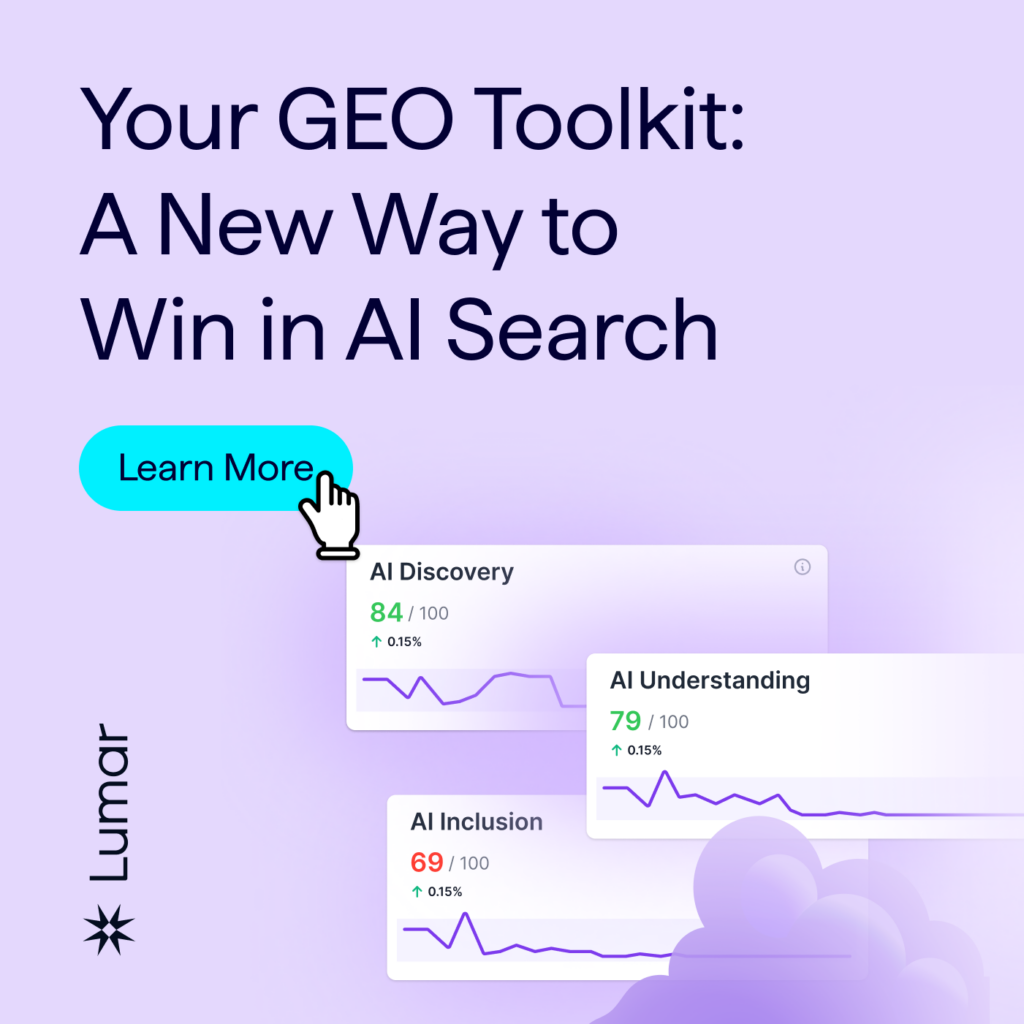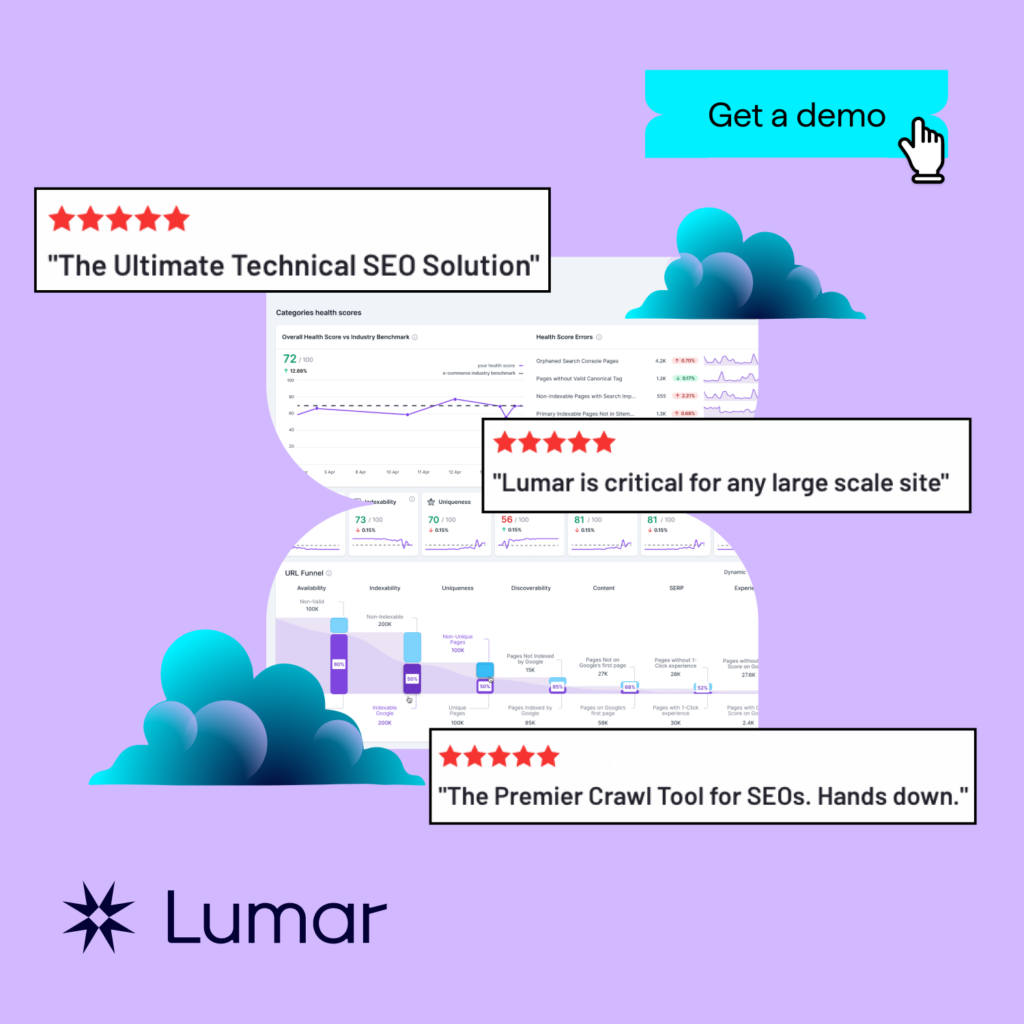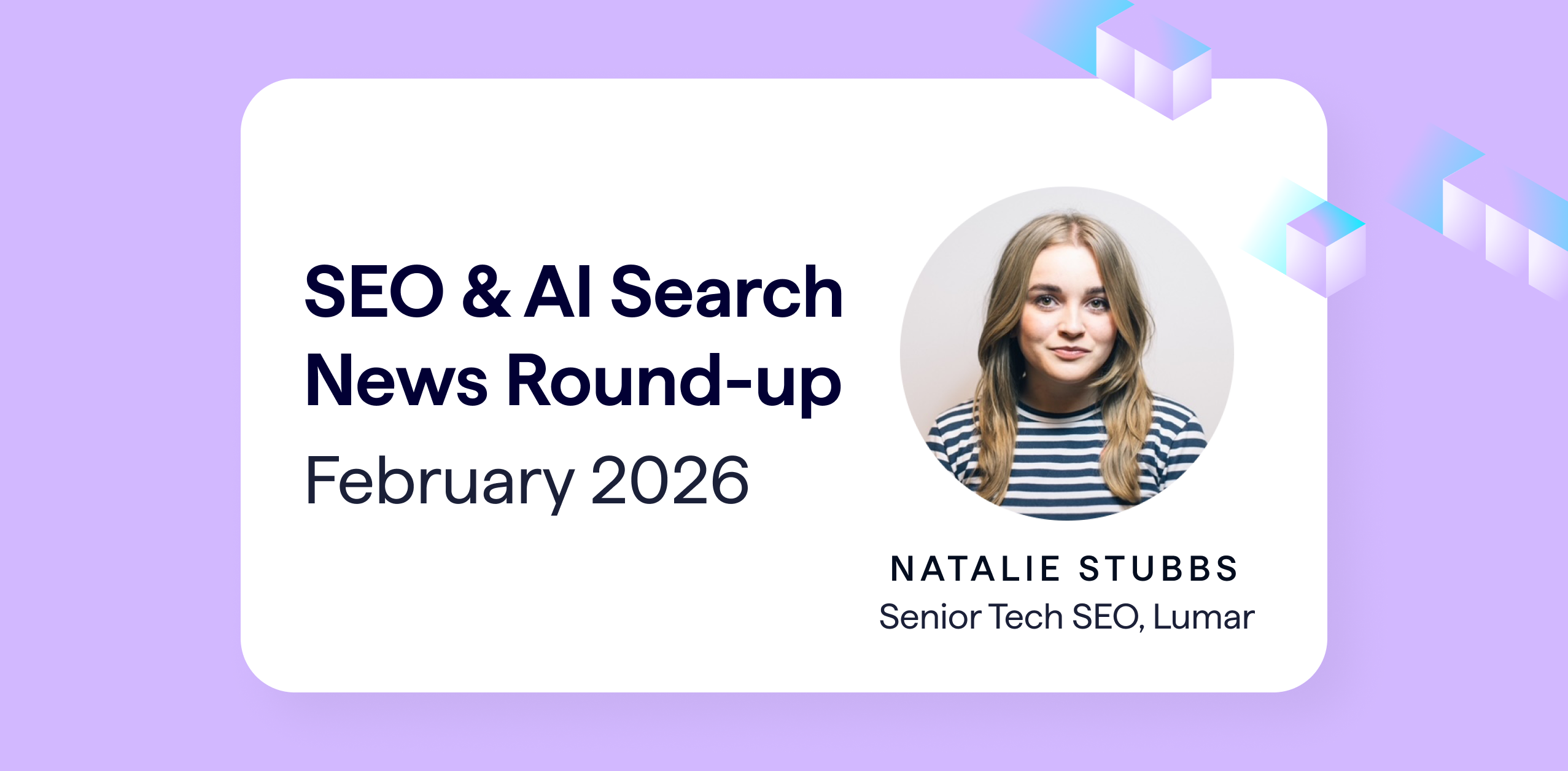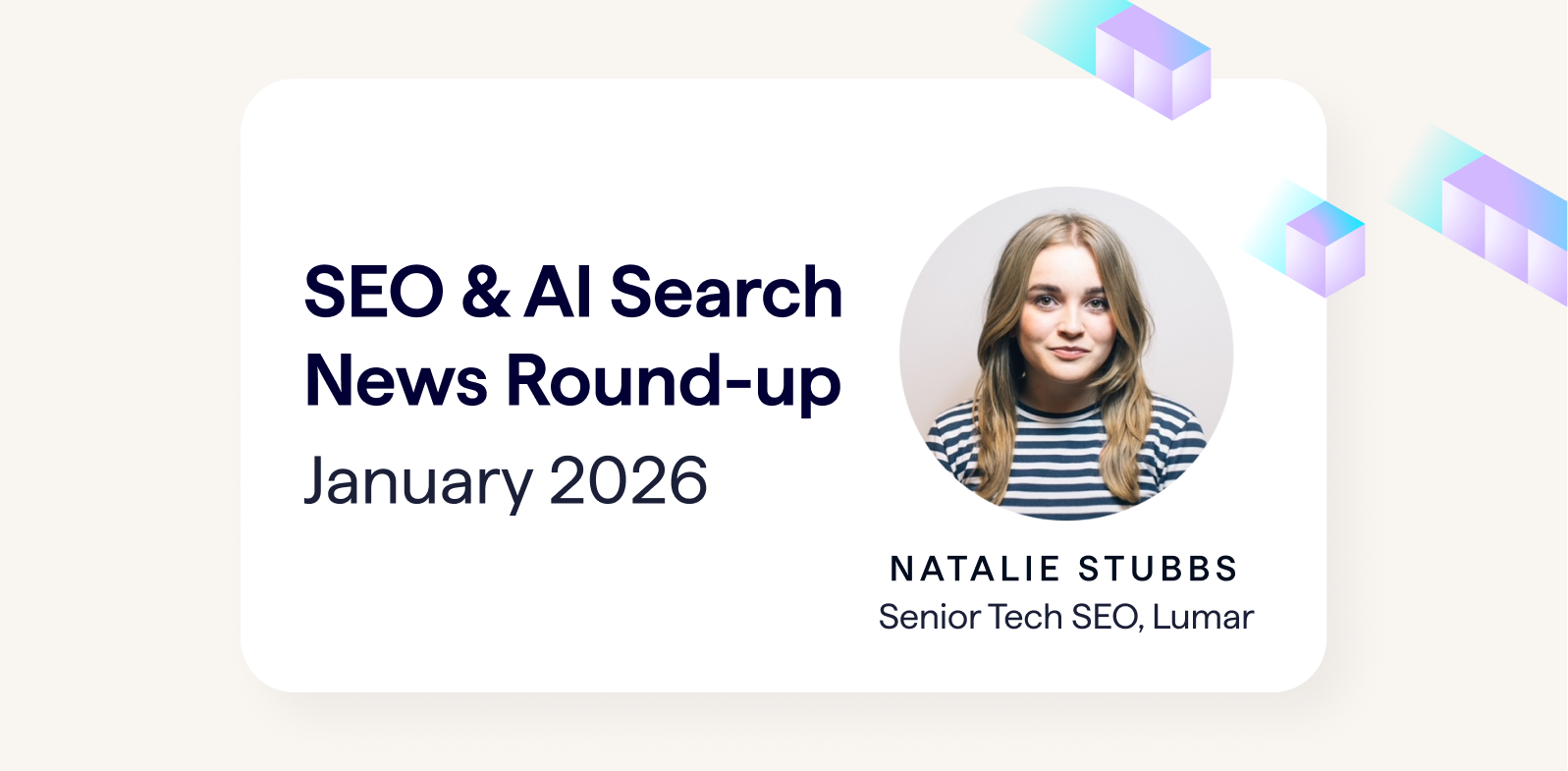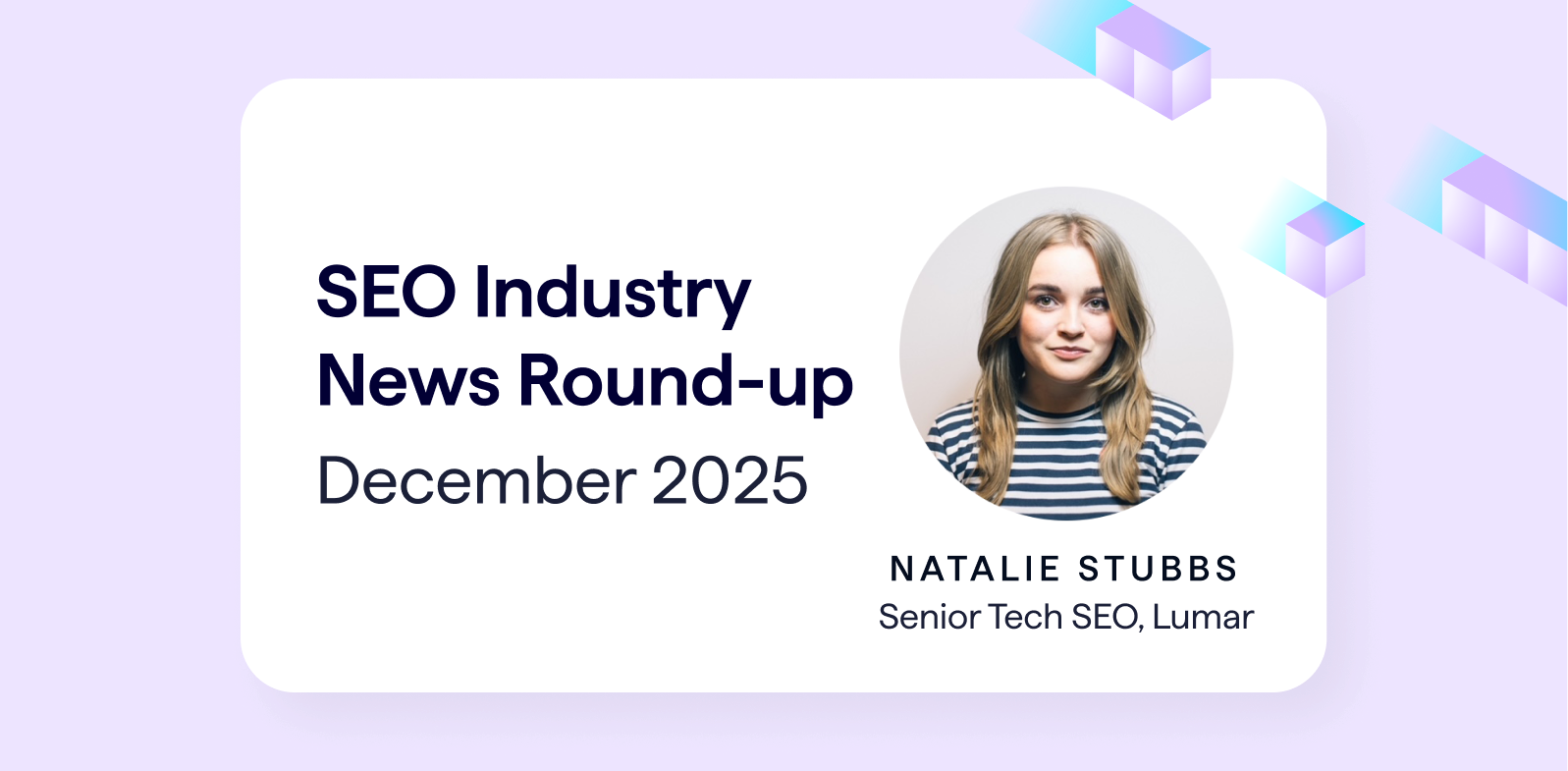What happened in the SEO industry this month?
Each month, Lumar’s in-house tech SEO experts hand-pick some of the SEO industry’s top news stories from across the web to keep you up-to-date on all things SEO and website optimization.
For our August 2025 SEO news roundup, top headlines include:
- Google’s ‘Top Stories’ SERP feature now allows you to select your preferred sources.
- Google launches AI Mode in the UK — and is expanding to 180 new countries starting this month.
- Ads are coming to AI mode.
- A new study shows that only 12% of AI citations rank in Google’s top 10 positions.
- Another study shows 40-60% of AI search citations are different one month later.
- Is Perplexity using ‘undeclared crawlers’?
- … and more!
Now, let’s dig into the key SEO news from August…
Google’s “Top Stories” now allows you to select your preferred sources
Users in the US and India will now see a star icon next to the ‘Top Stories’ header when searching for a trending news topic. From there, you can search for and select your preferred sources. Content from those sources will appear most prominently in future searches, provided they’ve published fresh content that’s relevant to your search.
It’s a big step forward in allowing users to personalize their search experience based on individual preferences.
For site owners, being selected as a “preferred source” in Top Stories promises increased visibility and greater real estate in users’ SERPs. Of course, the opposite (reduced visibility and SERP real estate) will also be true if users adopt competitor sites as their preferred choices.
(Source: Google: The Keyword Blog)
Google’s AI Mode launches in the UK — and will now expand to 180 new countries with new agentic features
Google’s AI Mode officially launched in the UK last month, following previous roll-outs in the US and India. Google specifies that AI Mode is designed to surface a wide range of web content in different formats, with prominent links through to publisher sites. However, the true impact that features like AI Mode have on website traffic is still unknown. It’s possible that some sites will see a decrease in overall CTR as a result of the change.
Google is also expanding AI mode to more users around the world — as of August 21, it began rolling out to 180 new countries (in English). The team is also bringing more agentic capabilities and personalized responses to AI Mode in Search.
(Source: Google: The Keyword Blog: “Introducing AI Mode in the UK“ and “AI Mode in Search gets new agentic features and expands globally”)
Ads are coming to AI Mode
Google is experimenting with embedded paid ads in AI Mode. These ads move beyond just targeting the initial user query and are now relevant to the AI-powered response. Ads can already be seen for some searches in the US, but fierce expansion is expected as we move into Q4 and peak season for online shopping.
(Source: Search Engine Land)
Only 12% of AI citations rank in Google’s top 10 for the original search
A recent study from Ahrefs found that just 12% of URLs cited by ChatGPT, Gemini, and Copilot appear in Google’s top 10 SERP positions for the same query. Perplexity was the fourth AI assistant included in the study and recorded a bigger overlap between citations and SERP ranking, although it was still only 28.6%. For the 15,000 long-tail queries included in the study, roughly 80% of URLs cited by AI assistants don’t rank anywhere in Google’s SERPs.
The study really highlights how different the algorithms are in each instance. It’s also a stark reminder that just because a page is ranking well in traditional search, it doesn’t mean it’ll be considered worthy of a citation by AI systems.
(Source: Ahrefs)
40-60% of AI search citations are different one month later
A new study into the volatility of AI search shows significant changes in citations month-over-month, even for identical queries. The study looked at tools such as Google’s AI Overviews, ChatGPT and Copilot. All three showed an above 50% drift in citations between June and July, signalling just how difficult it is to maintain consistent visibility via these tools.
Unlike traditional search engines, AI tools like these are built to avoid repetitive outputs. This frequent shuffling of citations can also introduce more diversity into the responses provided.
(Source: Profound)
Google confirms that AI content is fine, as long as it’s human-reviewed
Speaking in an exclusive interview with Kenichi Suzuki and Rio Ichikawa at a Google Search Central Bangkok event, Google’s Gary Illyes stressed the difference between human-created and human-curated content. AI-generated content is acceptable for both indexing and training purposes, as long as it’s been adequately reviewed and edited by humans before publishing.
The focus from Google is clearly in the direction of content quality, rather than just how content has been created. Illyes was keen to point out that simply labelling content as ‘human reviewed’ isn’t enough; the content must undergo in-depth editorial review to pass Google’s advanced quality detection filters.
(Source: Search Engine Journal and Search Engine Roundtable)
Cloudflare accuses Perplexity of using ‘undeclared crawlers’
In a blog post earlier this month, Cloudflare claimed to have observed Perplexity using ‘stealth tactics’ to get around robots.txt and firewall rules, quickly modifying its user agent and rotating through IP addresses when its declared UAs are blocked from crawling content. Perplexity reps have strongly denied the claims, pointing to a third-party tool that is used only for specialized tasks, not day-to-day crawling. Per Search Engine Land’s reporting: “Perplexity insisted its requests are made on behalf of users, not as preemptive crawling. The company says these are real-time fetches, akin to what a browser or email client does, and claims Cloudflare mistook its behavior for something it wasn’t.”
Whatever the cause, the findings do raise important questions around whether (and/or which) AI systems currently respect crawler restrictions in the same way as traditional search engines. Ensuring a level of consistency and transparency looks set to be an ongoing challenge.
( Sources: Search Engine Land ; Perplexity Blog ; Cloudflare Blog)
